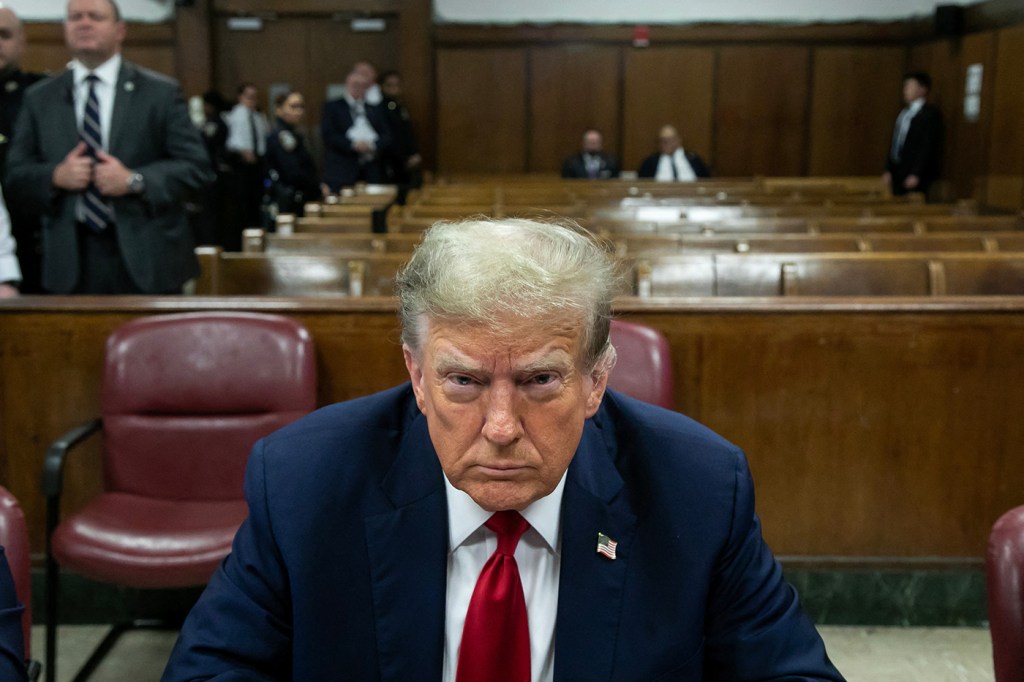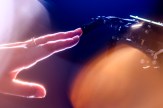From Donald Trump to Karen Read — how does jury selection proceed in high-profile cases?
When it comes to trials that have garnered significant public interest, jury selection presents something of a catch-22.

This week, jury selection began in two high-profile cases: New York’s hush money trial involving former President Donald Trump, and a Massachusetts murder trial involving the girlfriend of a deceased Boston police officer, Karen Read.
Many Americans know what it’s like to be summoned for jury duty — about 32 million are called to potentially serve every year. Only a fraction, or about 1.5 million, are actually impaneled in state court.
But when it comes to criminal trials that have garnered significant public interest, such as the prosecution of a former president — an unprecedented moment for the nation — jury selection can be a long and tricky process.
For one, both the Trump and Read trials are buzzing with media attention. The peppering of questions intended to root out bias proceeds like it would in any criminal trial. But judges and attorneys are keen to impanel jurors who are capable of avoiding publicity, while setting aside any preconceived notions about the defendants to look at the case as objectively as possible, Northeastern experts say.
That’s easier said than done, which is why the legal system provides attorneys and judges with several ways to vet members of the public who have been tapped to potentially sit on a jury — including those who might want to game the system, as some may be motivated to do in Trump’s criminal fraud trial.
“We have built into the system that lawyers are entitled to challenge potential jurors in two ways,” says Jeremy R. Paul, professor at the Northeastern University School of Law. “One is based on cause, or when a lawyer hears something in a person’s voir dire that gives them reason to doubt their ability to be impartial.”
“And the other is a peremptory challenge, where you don’t need a reason,” Paul says. “You typically have a certain number of those challenges that you can use.”
Trump’s attorneys and his prosecutors each get to strike up to 10 jurors from the pool of admitted jurors under the peremptory challenge. As of Tuesday, seven of 12 jurors have been picked to decide the case.
But in the Trump trial, legal teams would be concerned less with the fact that prospective jurors might be exposed to media coverage of the case — with a figure like Trump, it’s inevitable — and more with their political leanings and hopes for the 2024 election, Paul says.
“The trial of a former president, who is again running for president, in an election year is unprecedented,” Paul says.
There is no foolproof method for ensuring juror impartiality — although defense attorneys and prosecutors, working in concert with judges, often devise questionnaires that try to get into the minds of jurors in ways that may seem oblique.
Featured Posts
“After a certain point, the lawyers and the judge simply have to trust them,” Paul says.
Still, jury selection involving celebrities can be something of a catch-22.
“On the one hand, there is a fundamental principle in criminal cases that trials should occur in the county where the incident occurred based on the notion that crimes offend the entire community and regular citizens — the ‘People’ — should have a say in meting out justice,” says Daniel Medwed, Northeastern distinguished professor of law and criminal justice. “Criminal defendants, in turn, have a constitutional right to be tried by a ‘fair and impartial’ jury of their peers.”
“On the other hand, this poses a problem in high-profile cases where, due to ample pretrial publicity in the affected region, it might be hard to empanel twelve fair and impartial jurors,” Medwed continues. “The challenge, then, is not to find jurors who haven’t heard of the case — who, in Boston, did not know about the Boston Marathon bombing case when it went to trial in 2015? — but rather to find jurors who can put aside what they have heard and any preconceived notions and look at the case with equanimity.”
In recent years, that has often meant that lawyers are also combing through prospective jurors’ social media history. Indeed, jurors have already been dismissed in Manhattan after court officials flagged online posts that point to anti-Trump sentiment.
For Trump and Read, the process could take some time.
“I anticipate a long, arduous slog through jury selection this week in Norfolk County with the Karen Read case,” Medwed says.











